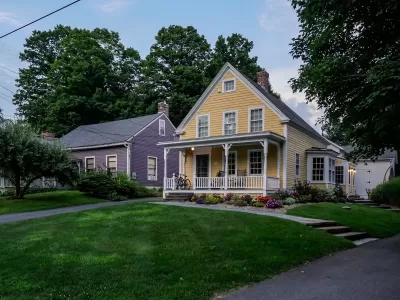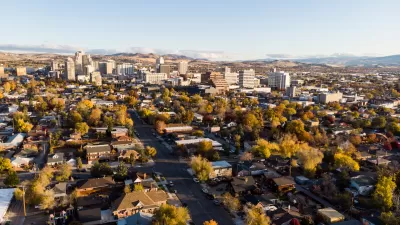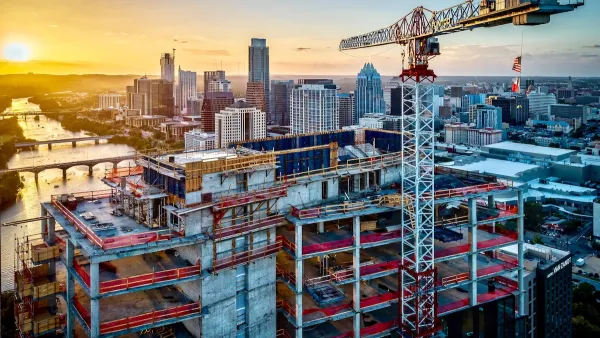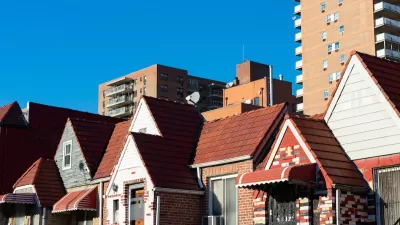Cities and towns have until February to adjust their zoning codes to reflect more permissive rules for accessory dwelling units.

A new Massachusetts state law will require cities and towns to revise their zoning laws when it comes to accessory dwelling units (ADUs), reports Scott Merzbach in the Amherst Bulletin.
The state law, the Affordable Homes Act, preempts some local requirements, such as Amherst’s owner-occupancy requirement and prohibitions on free-standing units. However, towns “may add designs and standards, architectural character and other criteria, within reason,” according to Amherst Senior Planner Nate Malloy. In Northampton, “second units of any size are already allowed in Northampton’s residential districts, so long as they meet minimum design criteria, setbacks, open space, heights and other dimensional criteria.”
Some small and rural communities with septic systems will likely see slower change, as a state law limits the number of bedrooms by lot size. According to William Dwyer, a Planning Board Clerk in the small town of Hadley, “revisions to zoning rules in Hadley will likely set reasonable limits, such as maintaining rear and side setback requirements, the need for the dwelling to be on a foundation and for water and septic or sewer connections to the main home.”
FULL STORY: State’s new housing law to trigger zoning reset for accessory dwellings

Planetizen Federal Action Tracker
A weekly monitor of how Trump’s orders and actions are impacting planners and planning in America.

Map: Where Senate Republicans Want to Sell Your Public Lands
For public land advocates, the Senate Republicans’ proposal to sell millions of acres of public land in the West is “the biggest fight of their careers.”

Restaurant Patios Were a Pandemic Win — Why Were They so Hard to Keep?
Social distancing requirements and changes in travel patterns prompted cities to pilot new uses for street and sidewalk space. Then it got complicated.

Platform Pilsner: Vancouver Transit Agency Releases... a Beer?
TransLink will receive a portion of every sale of the four-pack.

Toronto Weighs Cheaper Transit, Parking Hikes for Major Events
Special event rates would take effect during large festivals, sports games and concerts to ‘discourage driving, manage congestion and free up space for transit.”

Berlin to Consider Car-Free Zone Larger Than Manhattan
The area bound by the 22-mile Ringbahn would still allow 12 uses of a private automobile per year per person, and several other exemptions.
Urban Design for Planners 1: Software Tools
This six-course series explores essential urban design concepts using open source software and equips planners with the tools they need to participate fully in the urban design process.
Planning for Universal Design
Learn the tools for implementing Universal Design in planning regulations.
Heyer Gruel & Associates PA
JM Goldson LLC
Custer County Colorado
City of Camden Redevelopment Agency
City of Astoria
Transportation Research & Education Center (TREC) at Portland State University
Camden Redevelopment Agency
City of Claremont
Municipality of Princeton (NJ)





























